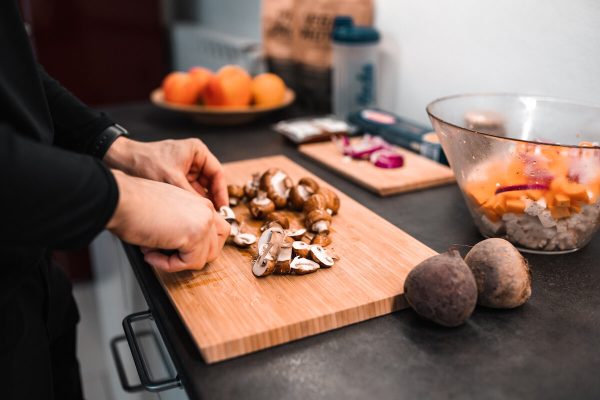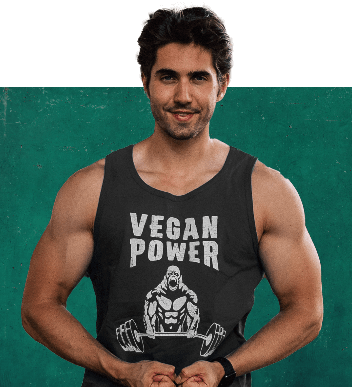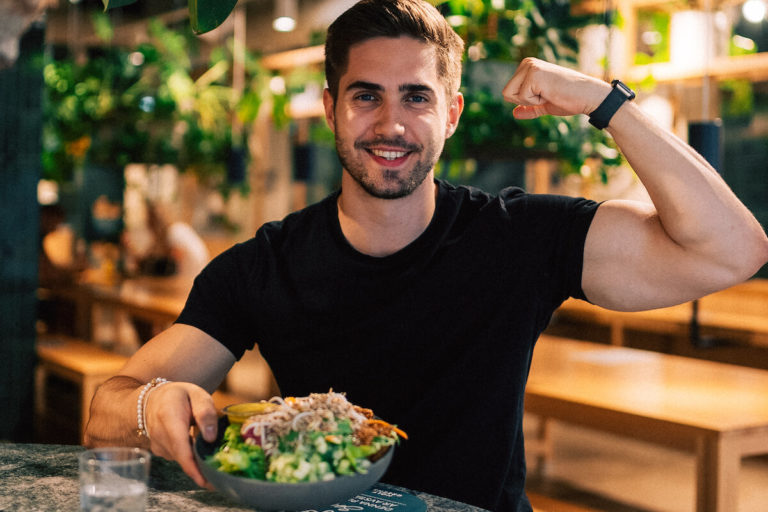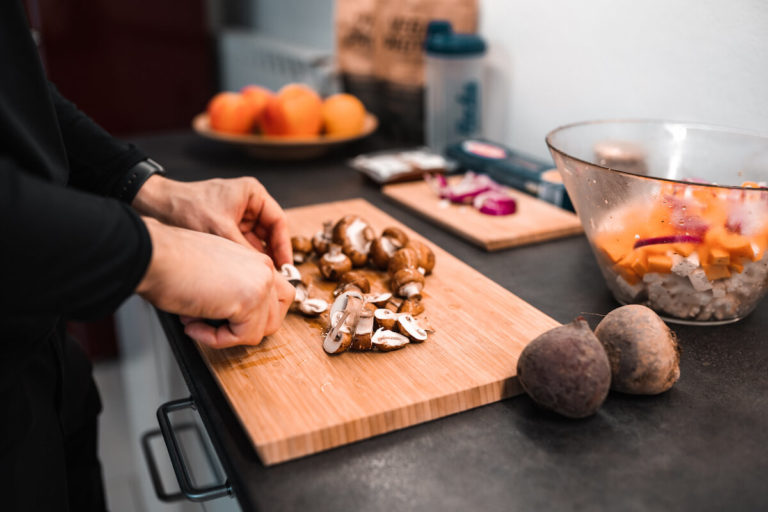Discover the Power of a Plant-Based Lifestyle with Our Comprehensive Guide to Vegan Diet for Beginners.
Main Takeaways
- A vegan diet is characterized by the exclusion of all animal products from the diet.
- People may adopt a vegan diet for ethical, environmental, or health reasons.
- A vegan diet that is carefully planned can provide numerous health benefits. You will discover what an ideal vegan diet looks like.”
With each passing year, more people decide to go vegan. In the United States alone, thousands of people turn vegan each year as studies show. They may turn to veganism because they no longer want to contribute to any harm done to animals, or they switch for their health. As people switch up their lifestyles, the conversations continue, and veganism spreads further.
Have you grown curious about veganism? It’s natural for questions to be floating around your head if you’re thinking about transitioning to a vegan diet. With so much information available, making the switch to a vegan diet can be challenging for beginners.

By loading the video, you agree to YouTube’s privacy policy.
Learn more
Veganism is more than just an online trend, although there’s no denying its social media presence. Starting an entirely new lifestyle and becoming vegan can be challenging. There is so much information out there, and it’s easy to get lost as a vegan beginner.
Consuming a vegan diet may bring about several health benefits, such as better blood sugar regulation and enhanced cardiovascular health. Additionally, if weight loss is the desired outcome, this diet may also aid in weight loss efforts.
Having a detailed guide that covers a vegan diet for beginners will make the process so much easier.
What’s the difference between veganism and plant-based?
A plant-based diet contains foods that come from plants instead of animals. Plant-based meals tend to be packed full of vegetables, beans, grains, and similar ingredients. The main difference between plant-based diets and veganism is that plant-based diets don’t require the exclusion of animal products entirely.
By definition, veganism excludes all forms of animal exploitation. That means vegans don’t consume anything from animals. They eliminate dairy, meat, and other animal products. This exclusion extends to beauty products, clothes, and anything else that can be consumed.
While some people go vegan for health reasons, this lifestyle has a lot more to do with decreasing harm to animals and supporting the environment.
This table of animal-based products will make it easier for you to understand the difference between veganism, plant-based, vegetarianism, flexitarian, pescetarian, and omnivore.
Vegan vs. Vegetarian vs. Omnivore: What’s included?
| Food/Porduct | Vegan | Plant-based | Vegetarian | Flexitarian | Pescetarian | Omnivore |
| Meat | X | X | X | ✓* | X | ✓ |
| Fish | X | X | ✓ | ✓* | ✓ | ✓ |
| Dairy products | X | X | ✓ | ✓* | ✓ | ✓ |
| Honey | X | X | ✓ | ✓* | ✓ | ✓ |
| Eggs | X | X | ✓ | ✓* | ✓ | ✓ |
| Seafood | X | X | ✓ | ✓* | ✓ | ✓ |
| Gelatin | X | X | X | ✓* | ✓ | ✓ |
| Whey | X | X | ✓ | ✓* | ✓ | ✓ |
| Leather | ✓ | ✓ | ✓ | ✓* | ✓ | ✓ |
| Animal testing | ✓ | ✓ | ✓ | ✓* | ✓ | ✓ |
Different types of veganism
The main reason there are different types of vegans is that people have unique motivations for going vegan in the first place.
If you switch your lifestyle for health reasons, you might lean towards a raw vegan diet or a whole-food vegan diet. If your primary motivation is helping animals and decreasing their suffering, you might follow a junk-food vegan diet. If you’re all about helping the planet and reducing waste, then maybe the freegan diet is for you.
Different types of diets vegan beginners should know:
- Raw Vegan Diet- Those who follow the raw vegan diet excludes all animal products and stick to raw foods. When foods are heated up, they can never reach high temperatures. Food should not exceed 118°F when cooked because this process destroys vital enzymes.
- Gluten-free Vegan Diet- The gluten-free vegan diet cuts out gluten and animal products and leaves vegetables, fruits, plant-based proteins, and gluten-free grains like oats and quinoa. People see lots of benefits when cutting out gluten and animal products, including an increase in energy and better skin.
- Fruitarian Vegan Diet- This vegan diet is more restrictive than others, and many nutritionists find it harmful. Fruitarians consume loads of fruit, but consuming vegetables, whole grains, nuts, and seeds are okay too. The vital thing with this diet is that raw fruit must make up the majority of your calories.
- Whole-food Vegan Diet- With a whole-food vegan diet, animal products are cut out, and meals consist of unprocessed whole foods. Imitation meats, cheeses, and other products aren’t allowed with this vegan diet.
- Junk-food Vegan Diet- The junk-food vegan diet is the opposite of a whole-food vegan diet, but the belief in cutting out animal products is still present. Junk-food vegans tend to consume loads of highly processed foods and imitation products. With this diet, people aren’t as focused on eating healthy, but rather enjoying food while cutting out anything derived from animals.
- Raw Till 4 Vegan Diet- With this diet, mornings and afternoons consist of low-fat raw vegan foods. After 4 PM you can finish off your day with something cooked. Dinner should still be healthy and tends to contain good carbs and be low in fat.
- Paleo Vegan Diet (Pegan Diet)- The pegan diet is what you get when you combine veganism with the paleo diet. With this diet, your plate will be full of whole foods that could be hunted, gathered, or foraged, which is the biggest rule with paleo. With a pegan diet, no dairy is allowed, and as much sugar and sodium are cut out as possible.
- Freegan Diet- Freegan describes a person that only eats free foods. With this diet, people take discarded food from restaurants and stores and create other foods at home. Some people follow this loosely, while others can be found regularly dumpster diving for their food.
Once you figure out exactly why you’re eager to make the switch, you’ll know which vegan diet is right for you as a vegan diet beginner. Most of these can serve as the perfect vegan diet for beginners.
To get an even better understanding of what Vegan Diet to choose and what you might want to stay away from, watch this video where I share the 7 Vegan Diets you should avoid:
How should you make the transition to veganism?
Some people change their lifestyle overnight, while others find it easier to cut things out slowly. Is one way better than the other?
There is not just a single way to make the transition, but here are a few tips on becoming vegan. To stick to veganism as a beginner, you should follow your gut and not rush the process. Go at a speed that feels right.
Click on the button to load the content from open.spotify.com.
Most beginners find it easiest to switch to a vegetarian diet and transition to vegan from there. That means cutting out all meat, fish, and poultry. Depending on the type of vegan you want to be, you may decide to add some imitation meats as you make this switch. Adding more plant-based proteins to your meals is even better.
On the other hand, many people report going vegan cold turkey worked for them as well.
As you switch to veganism, you will want to lower your intake of dairy and other animal products. This should be done at your own pace, whether that means cutting it all out at once or going one food group at a time.
What are the benefits of following a vegan diet?
Vegan diets are linked to a lower risk of certain health conditions, like heart disease and certain types of cancer. Plus, plant-based diets are typically lower in saturated fat and cholesterol, which can be helpful for maintaining a healthy weight.
As this review from 2022 shows, a vegan diet can help with weight loss. Switching to a vegan diet can help you meet your body goals. When paired with workouts, it can also help you get fit and gain muscles, but this diet comes with benefits beyond looks, as it also immensely affects your health.
According to the National Library of Medicine, vegan diets may even reduce the number of medications needed to treat chronic diseases. Many doctors advise their patients to cut out animal products or switch to a plant-based or vegan diet. This is due to the many health benefits that come with this diet, such as a lower body mass index, blood pressure, HbA1C, and cholesterol levels.
There’s even some evidence to show vegan diets protect against cancer! Plant-based diets impact the body and brain differently than other diets. As explored in this review from Translational Psychiatry, plant-based diets can help when it comes to overall health and tackling the disease.
Benefits associated with a vegan diet may include:
- Weight loss
- Reduction of disease
- Management of disease
- Disease prevention
- Lowering blood sugar levels
- Improving organ function
- Decreasing environmental footprint
A vegan diet may offer a range of benefits, including improved health, weight loss, environmental sustainability, and animal welfare. However, it’s important to ensure that you are consuming a varied and balanced plant-based diet to meet your nutritional needs. The benefits of veganism can vary from person to person and depend on the quality of the diet.
What are the risks associated with a vegan diet?
One potential issue with following a vegan diet is the possibility of not obtaining sufficient nutrients. This can be a particular concern for those new to veganism who may feel overwhelmed by the abundance of information about veganism and may not be knowledgeable about the most nutritious plant-based foods, essential nutrients, or potential vegan diet deficiencies.
There is a fear with veganism that this diet doesn’t carry proper nutritional value.
Vegans often are at higher risk of certain nutrient deficiencies, if they do not pay attention to their nutrient intake and consume a varied diet. However, a well-planned vegan diet can provide all the nutrients the body needs to function properly.
When thoroughly planned, a vegan diet is completely safe and can be the healthiest option out there.
Calcium is one nutrient that people worry about in a vegan diet. Research shows, vegans show a lower calcium intake than vegetarians and omnivores. This finding emphasizes the need for vegans to monitor their calcium status.
Deficiencies are no longer a risk with well-planned meals. With the proper knowledge and understanding of the nutrients your body needs to thrive, you can plan your meals accordingly and not miss a thing.
Which supplements do vegans need?
Vegans may be at higher risk of deficiency in certain nutrients that are commonly found in animal-derived foods, such as vitamin B12, omega-3 fatty acids, and heme iron as well as calcium.
These nutrients can be difficult to get from plant-based sources, so it is important for vegan diet beginners to be mindful of their intake and consider taking supplements or consuming fortified foods if necessary.
There are a few nutrients you need to be sure you’re getting. These include
- Vitamin B-12
- Vitamin D
- Omega-3s
- Calcium
- Iron
- Zinc
- Iodine
One of the biggest nutrients to worry about as a vegan diet beginner is vitamin B-12. As people get older, they might need to supplement this vitamin anyways, but vegans need to worry about it a little sooner. B-12-fortified foods like nutritional yeast and soy products can help with this, but a supplement does the trick without much effort.
Vitamin D is an essential nutrient that plays a key role in bone health and immune system function. Our body produces the Vitamin when it is exposed to sunlight, it can be tough to get enough of it during winter times. So it’s recommended to supplement it no matter what diet you are on.
Vegans may be at risk of deficiency in vitamin D, as it is found naturally in very few plant-based foods. To ensure that you are getting enough vitamin D as a vegan diet beginner, vegans can consider taking a supplement or consuming fortified foods such as plant-based milks.
With the spread of veganism, you no longer need to put too much thought into individual supplements. These days some supplements cover all the bases in one pill or product. That means you can take a single supplement once a day and not have to worry that you’re lacking nutrients as a vegan diet beginner.
This Instagram post says it quite clearly: You need nutrients, not the life of an animal.
What does the perfect vegan diet look like?
It’s difficult to say what the perfect vegan diet looks like. Each nutrient you need can be found in more than just a single food item. On top of that, we all have different tastes and preferences. What your vegan diet looks like will differ from another vegan’s diet.
Your meal plan should include a variety of vegetables, fruits, oats, nuts, seeds, leafy greens, and legumes.
Vegan Foods to Eat Every Day as a Beginner
- Fruits
- Vegetables
- Lentils
- Beans
- Soy
- Tofu
- Seitan
- Tempeh
- TVP (texturized vegetable protein)
- Seeds
- Whole grains
- Oats
- Quinoa
- Brown rice
- Nuts and nut butter
Other staples in a vegan kitchen include nutritional yeast, plant-based milks, and a variety of flavorful spices. If you’re not worried about processed foods, consider trying out some meat and dairy alternatives too.
Protein Intake for Vegan Beginners
As a vegan, it is important to pay attention to your protein intake to ensure that your body can function properly. Protein is an essential nutrient that plays a key role in building and repairing tissues, as well as in the production of hormones, enzymes, and other molecules that are important for the body’s functioning.
Vegan diets can provide sufficient protein, but it is important to consume a variety of protein-rich plant-based foods such as tofu, tempeh, seitan, beans, and lentils to ensure that all essential amino acids are consumed.
To make sure you’re getting enough protein to support muscle growth and strength, it’s recommended that you eat 1.0, 1.3, or 1.6 grams of protein per kilogram of body weight per day if you have minimal, moderate, or intense physical activity, respectively.
- Minimal physical activity: 1 gram of protein per kg of bodyweight
- Moderate physical activity: 1.3 grams
- Intense physical activity: 1.6 grams
If you strive for a higher protein intake it is recommended to get in more lean protein sources. These are tofu, tempeh, TVP (texturized vegetable protein such as soy chunks), seitan, and protein powder. You may also want to look into a vegan protein supplement as mentioned above.
Vegan sources of protein include
- Quinoa
- Oats
- Beans
- Chickpeas
- Lentils
- Seitan
- Tofu
- Tempeh
- Seeds
- Nuts and nut butter
| Important: When vegan beginners switch to a plant-based diet, they sometimes make the mistake of substituting animal-based protein sources with vegan protein sources that are also high in carbohydrates or fat. While beans, lentils, and nuts contain proteins, they are not as protein-dense as other vegetable sources of protein, such as tofu or seitan. This means that vegans may need to consume larger quantities of these foods to meet their protein requirements. |
Try incorporating fruits and vegetables of every color too. This will help you get all of the minerals, vitamins, and nutrients you need.
The big thing here is variety. While you can eat the same meals over and over again, it is good to experiment at first. Cook a range of meals until you find vegan dishes you love.
Vegan diet for beginners: The bottom line
If you are considering changing your life through veganism, it’s important to seek all the answers before diving in.
Figure out which products and foods you currently enjoy are vegan, and what you will need to substitute or change. A little research and apps like Is It Vegan can help with that. Take the time to understand the core principles of required nutrition, and plan meals and a grocery list that meets these needs.
Veganism doesn’t need to be complicated. You can eat delicious meals and add imitation products if you wish. Following a vegan diet for beginners will make the switch easy. Remember to take your time as you transition and learn to enjoy the process.







